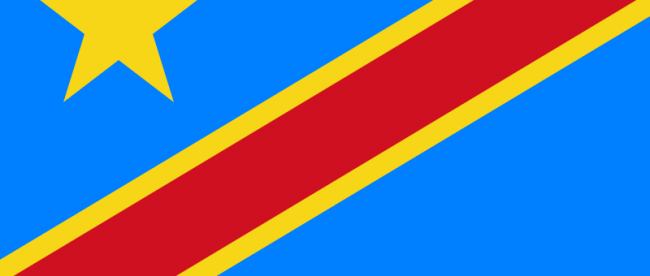At Least He Wasn’t Corrupt

In the summer of 2006, the Democratic Republic of the Congo held its first true election in more than a generation. Many different parties fielded candidates, including one called the Union of Congolese Nationalist Federalists (“UNAFEC”). And while UNAFEC didn’t earn enough votes to take the Prime Minister’s seat, they did well enough to get at least one spot in the cabinet. On February 5, 2007, Andre Kasongo Ilunga (not pictured), a UNAFEC member, was named the Minister for Foreign Trade for the nation. But his time in office was short-lived. He never showed up for work — and, shortly after being sworn in, sent in a letter of resignation instead.
There was a good reason for this, though: Ilunga probably never existed in the first place.
Very little about Ilunga is known, which makes sense given the previous sentence. Officially, he was born on October 20, 1972 and at one point or another, was a vice-president of UNAFEC. Beyond that, there’s nothing, which is probably an accurate and complete biography of Ilunga anyway.
Most likely, Ilunga was the creation of a man named Kisimba Ngoy, who lead the UNAFEC party at the time of Ilunga’s appointment to the trade post. At the time, the elections results meant that Foreign Trade position was to be a member of UNAFEC, but not any one specific member thereof. The process of deciding on the actual person to fill that role was pretty straight-forward: Ngoy, as the head of UNAFEC, was to provide the nation’s Prime Minister — Antoine Gizenga — with a list of at least two acceptable appointees. Gizenga, in turn, would pick his minister from the list. Simple, but it turned out, exploitable.
As Reuters reported, many believed Ngoy wanted the Foreign Trade position for himself. (Ngoy denied this and Ilunga was unavailable for comment.) But that was unlikely, as Ngoy and Prime Minister Gizenga were political enemies — Ngoy had backed one of Gizenga’s chief rivals previously. So Ngoy gave Gizenga a difficult choice, and submitted only two names for the Foreign Trade post: Ngoy’s and Illunga’s. Gizenga could pass over Ngoy, but to do so, he’d have to give a virtually unknown 35-year-old (at best!) a pretty large role in the fledgling government. And that would never happen, until it did.
Rather than promote someone he didn’t like, Gizenga selected someone he had never met. And never would, because Illunga didn’t show up to be sworn in or to take whatever meetings Foreign Trade ministers need to take. Instead, almost immediately afterward, as the Telegraph notes, that Ngoy “handed a letter to the prime minister announcing that Ilunga had quit.”
Gizenga didn’t believe that the letter was genuine; Ngoy, on the other hand, insisted that Illing “wrote it himself” and “signed it,” asking the press rhetorically “could an imaginary man do that?”. To root out the truth, Gizenga decided to decline Ilunga’s resignation. On March 4, 2007 — almost a month after Illunga took office — the BBC reported that Gizenga “Prime Minister launched an investigation” and insisted that Ilunga “remain in his post until he resigns in person.” Which, of course, he couldn’t do, as he didn’t exist “in person.”
Ultimately, Gizenga gave up on the ghost, accepting the resignation of the non-existent UNAFEC member. Ilunga’s term ended unceremoniously sometime that November, and Ngoy resigned from his party’s leadership.
Bonus Fact: Despite the troubles with the 2006 election in the Democratic Republic of the Congo, the fact that it happened in the first place is a major success. In 2003, the Second Congo War came to an end when the warring sides declared a stalemate. But by then, the damage was already extensive. An estimated 2.7 million to 5.4 million people died in the nearly five year-long war, making the death toll the largest since World War II.
From the Archives: The Bicholim Conflict: The war that wasn’t.
Take the Quiz: Can you name the countries that border the Democratic Republic of the Congo?
Related: “Dancing in the Glory of Monsters: The Collapse of the Congo and the Great War of Africa” by Jason Stearns. 4.5 stars on 108 reviews.
